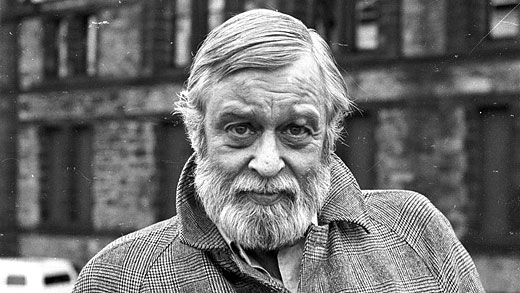
Over time I’ve used different metaphors to describe my editing process. Maybe not aloud, but in my head. And here I’m going to mix them in a way they warn you not to when you’re writing a story. Sometimes I think of my first drafts in terms of filming. I get as much footage as I can, knowing as I go that I’ll leave a lot of it on the cutting room floor. Sometimes I even think how nice it would be if I could just place the finished draft in the hands of someone I trust who could peace the final version together from the footage I provide. But there’s no one I trust enough for that. To some extent workshopping serves this purpose partially. But I still have to use my discernment, consider the various opinions proffered and choose which advice I think is best. Am I hearing the same criticism repeatedly? What kind of prejudices and baggage do those critiquing my work bring to the table? Whenever I listen to feedback I’m sifting, weighing the validity of each piece while trying my best to avoid defensiveness, mostly keeping my mouth shut and letting my gut lead. I don’t take notes during workshops, I just listen because I’ve noticed the best and most accurate advice stands out and stays with me regardless of whether I write it down. To this end, I have a group of people I trust and we meet periodically and their input has been invaluable to my editing process, which I think of these days in terms of whittling.
When I’m done writing a story, if I’m to continue the filming metaphor, I don’t go in for reshoots, which is why I work fairly slowly most of the time. And this is where I mix the metaphor and shift to whittling. Because it’s not that I go through and evaluate each scene and have multiple options to choose from. What I have is a large chunk of raw material. I take that raw material and start from the beginning with one question in my mind: what don’t I need? My goal is to shape this hunk of raw material into something piercing, something that moves the reader. It’s a skill, just as composing a first draft is, and as a skill, it takes time to develop. It used to be that I worked as methodically as I do because I hated to edit. If I got it right in the first go round, I didn’t have to do too much. But this was because I was never satisfied with the way things read when I went back to reread. I was continually changing things and changing them back, and every writer knows how frustrating that is. If only there were a way to know exactly what was right, but it’s subjective. It’s about decision making, and the way we get better is by making better decisions about what details to focus on and what to cut.
My editing habits changed again as recently as late last year. I was reading A Tragic Honesty: The Life and Work of Richard Yates by Blake Bailey, and Bailey described how merciless Yates was in his editing habits. He cut and cut and reworked and taught his writing students to never stop re-evaluating their own work on a periodic basis. As I read this, I thought, why don’t I do that? When I’m done a piece, I submit it and keep moving the piece around until it finds a publication that will accept it. Rarely, once I consider something finished do I go back and re-evaluate in this way. But I recognized that I should. I spent the larger part of my efforts in November and December slashing and burning any unpublished works that I had, and in the end, I couldn’t deny they were better stories. I was taking 1,000 words off a 5,000 word story, and I felt great about it. Those thousand words didn’t really need to be there.
Now, as I approach editing my novel, I have some practice with that mercilessness and I’ve been going at it with the red pen. The original draft was 96,000 words. My plan is to bring that down to at least 80,000 in the final version. These days, we’re asking a lot of people in asking them to read our work. There are so many demands on our time and energy that I as an author want to give those willing to engage my work the most essential elements. I know there’s other thinking on the subject. But why should a book be 600 pages when you can make your point in 400? Why should a story be 20 if you can make your point in 10? My approach might change in the future but for now, I’m going to continue to sheer off the excess, to shape my pieces into something I believe beautiful.

There are no comments yet